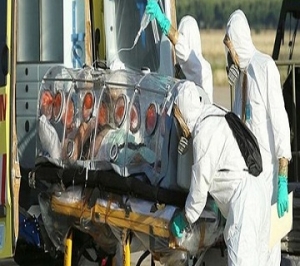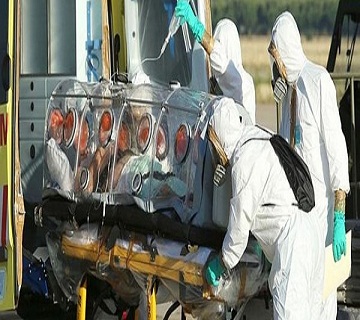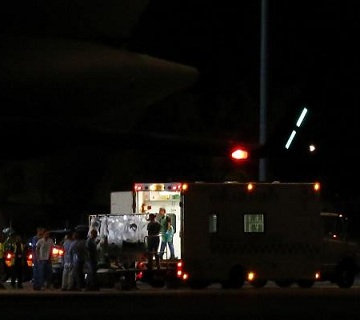
The statement is seen as important, as West African countries try to contain the spread of the virus that has claimed the lives of over 1,000 people. It has even started spreading to countries within the region.
The WHO made the statement after its medical experts met in Switzerland on Monday to discuss the issue.
The move came as Liberia said it was getting an experimental drug, Zmapp, after requests to the US government.
The WHO said where experimental treatments are used there must be informed consent and the results of the treatment collected and shared.
In a statement, it said: “In the particular circumstances of this outbreak, and provided certain conditions are met, the panel reached consensus that it is ethical to offer unproven interventions with as yet unknown efficacy and adverse effects, as potential treatment or prevention”.
But the organisation conceded there were still many questions to be answered including how data could be gathered effectively while the focus remained on providing good medical care.
It was also unclear where the funding for the treatment would come from.
Last week the WHO declared the Ebola outbreak was a global health emergency.
Vaccines To Protect
Meanwhile, the Liberian Government said experimental drugs will be brought into the country later this week – although manufacturer Mapp Biopharmaceutical warned supplies are limited.
Zmapp has been used on two US aid workers who have shown signs of improvement, although it is not certain what role the medication played in this.
A Roman Catholic priest, infected with Ebola in Liberia, who died after returning home to Spain is also thought to have been given the drug.
However, the drug has only been tested on monkeys and has not yet been evaluated for safety in humans.
The BBC reports that the drug, Zmapp, requested by the Liberian government, is one of the drugs that have been shown to work well in animals.
This contains a cocktail of antibodies that attack proteins on the surface of the virus.
Only one drug has moved onto early safety testing in humans. Known as TKM-Ebola this interrupts the genetic code of the virus and prevents it from making disease causing proteins.
The drug was trialled in healthy volunteers at the beginning of 2014 but the American medicines regulator asked for further safety information. The manufacturer says human studies may soon resume.
Vaccines to protect against acquiring the disease have also been shown to work in primates. American authorities are considering fast-tracking their development and say they could be in use in 2016.
But experts warn ultimately the only way to be sure a drug or vaccine is effective is to see if it works in countries affected by Ebola.
There is no cure for Ebola, which has infected at least 1,779 people since the outbreak was first reported in Guinea in February.
The disease spread to Nigeria, after a Liberian-American, Patrick Sawyer, was diagnosed of the disease and died after few days.
So far, two deaths have been reported, including the Liberian while ten persons have further been diagnosed of the virus and have been isolated.
Over 100 persons that had primary and secondary contacts with the index patient has been put under surveillance.
The Nigerian government had requested for the Zmapp from the American government but the request had not been approved, as the American government said the drug had not been scientifically confirmed to cure Ebola.
The Nigerian President, Goodluck Jonathan had declared the Ebola outbreak a National Emergency and approved an intervention fund of 1.9 billion Naira to contain the disease and stop the spread.




